EMU’s touring production of "Hare and Tortoise" is racing to a school near you
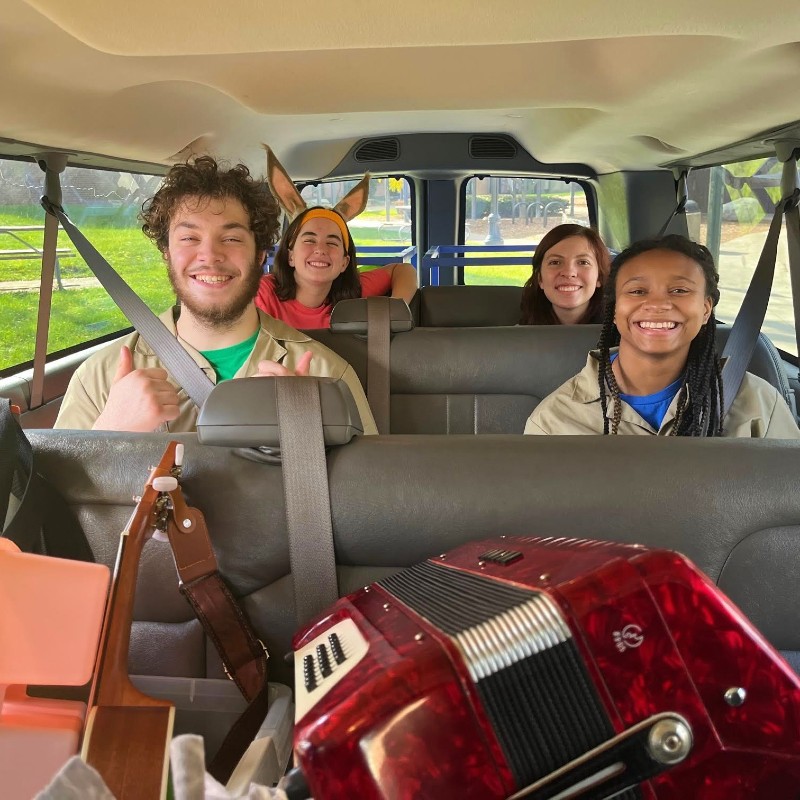
The Eastern Michigan Department of Theatre is doing a special tour of the beloved Aesop fable Hare and Tortoise. Adapted by Brendan Murray, and directed by Emily Levickas, the show is meant for kids around 3-8 years old, but anyone is welcome to come join the fun.
“We are touring to 10 different local elementary schools and libraries. We'll stop at four Ann Arbor elementary schools, including Abbot, Eberwhite, Haisley, and Wines. We also have two public performances at Eastern Michigan University in the Sponberg Theatre on Friday, November 10 at 7 pm and Saturday, November 11 at 10 am,” said Levickas.
The Tortoise and the Hare are involved in a race. The Hare, being the obvious favorite to win, is arrogant and mocks his competitor, the Tortoise. While the Tortoise knows that hard work and determination are enough to be a winner. In Aesop’s version, the Hare takes a nap during the race, underestimating his opponent, and awakes to the Tortoise crossing the finish line. We get the popular saying “slow and steady wins the race” from this tale.
With this particular adaptation, Levickas said, “The show is based on the classic Aesop fable, but this adaptation by Brendan Murray explores themes of friendship, opposites, and the passage of time. In the introduction to the adaptation, Murray says "I hit on the idea of letting go and particularly letting go of comfortable, predictable certainties in favor of dangerous, but ultimately more fertile uncertainties. That is to say, a play about the terror and excitement of growing up.”
Kelli O’Hara brings the bright lights of Broadway to the Michigan Theater
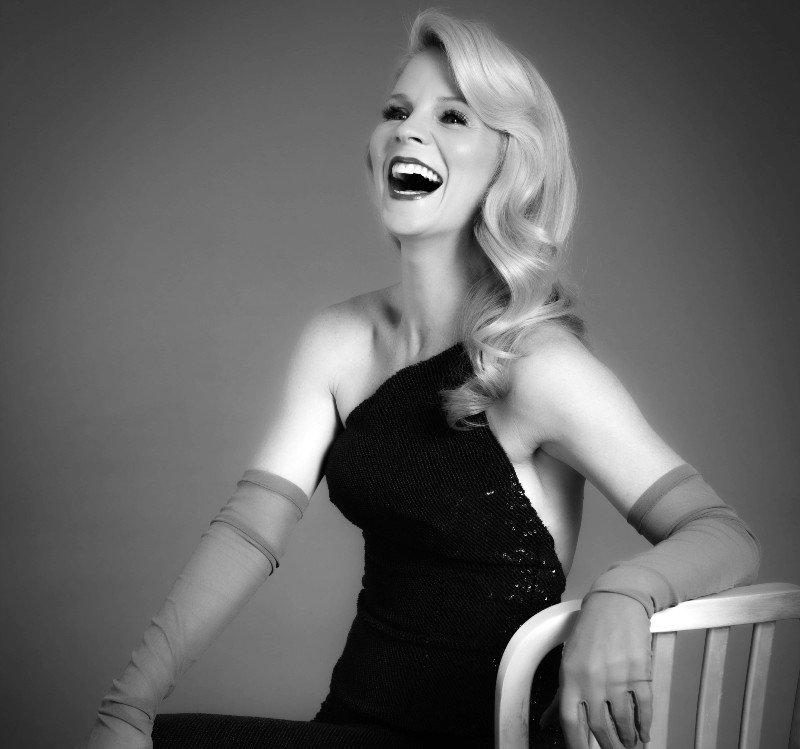
Kelli O’Hara is one of those versatile Broadway stars who shines in every show she’s in.
She originated the role of Clara in The Light in the Piazza; played feisty union leader Babe opposite Harry Connick Jr. in The Pajama Game; washed a man right out of her hair as Nellie Forbush in South Pacific; originated the role of Francesca in the stage musical adaptation of The Bridges of Madison County; and charmed her young charges, royalty, and audiences alike in The King and I, for which O’Hara won the 2015 Tony Award for Best Performance by a Leading Actress in a Musical.
All the other O’Hara performances I mentioned earned her Tony nominations, too, plus two more besides: Kiss Me, Kate and Nice Work If You Can Get It. So to call O’Hara one of our era’s greatest leading ladies of the stage isn’t hyperbole; it’s just true.
And although O’Hara’s slated to star in the world premiere Broadway musical adaptation of Days of Wine and Roses, scheduled to start previews January 6, she’s also recently been performing concerts in different parts of the country, and she’s headed to Ann Arbor’s Michigan Theater on Sunday, November 12 at 7 pm.
In advance of the show, the native Oklahoman answered a few questions via email about what inspired the concert tour; her newest upcoming show; and her memories of working alongside Ann Arbor native Ashley Park in The King and I.
Russell Brakefield's New Poetry Collection, “My Modest Blindness,” Reflects on His Experiences With Keratoconus
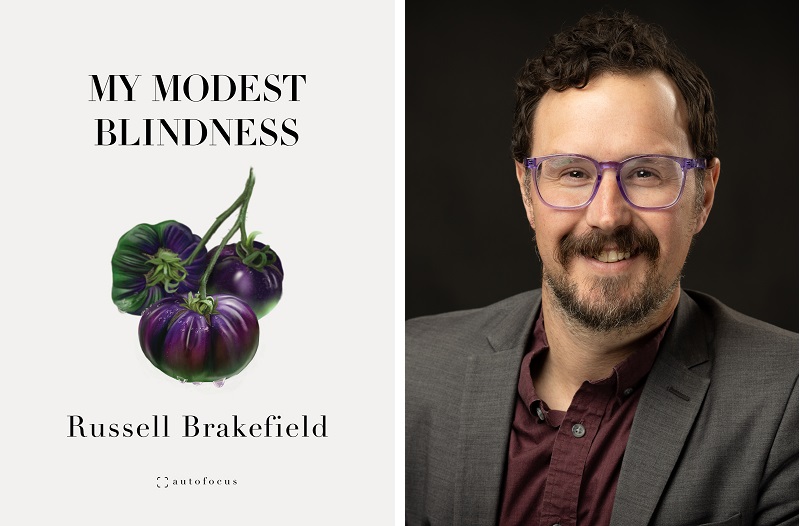
Russell Brakefield’s new poetry collection, My Modest Blindness, is both “a telescope of loss” observing how a health condition called keratoconus robs the sense of sight and an exploration of this new state where there are “maybe a million small truths held just out of reach.” Brakefield’s poems take a “reluctant trowel” to excavate this experience and then “step into a life of shadow.” The poet sees familiar life receding and seeks “to reclaim another.”
The book contains six sections, starting with “Paper Boats” which launches the poet unwillingly down this path with keratoconus. The next two sections bear titles suggesting a clinical examination in “Pathology” and a historical approach to eye conditions in “A Brief History of Corrective Technology.” The fourth section called “Ancestors” looks backward and forward, including family, art, and references to film and other mediums. “In Between Worlds” is the penultimate section, in which the poet identifies lessons, such as humility, and in the “Coda,” begins “again to play.”
The poems themselves, however, remain untitled, which has the effect of immediate immersion into the poet’s dimming world. The exception to titles, though not exactly formatted like a traditional title, is in the intermittent series of one-stanza poems that consistently start with the word “Entry” and a number in the first line. “Entry #7” describes heirloom tomatoes like those pictured on the front cover:
A tag in the dirt tells
me the varietal is Indigo Apple, though all
year I’ve been calling them Bruises or Savory
Plums or Skyline Just Before Nightfall.
For Real: Judy Banker Explores the Power of Emotions on New “Bona Fide” Album
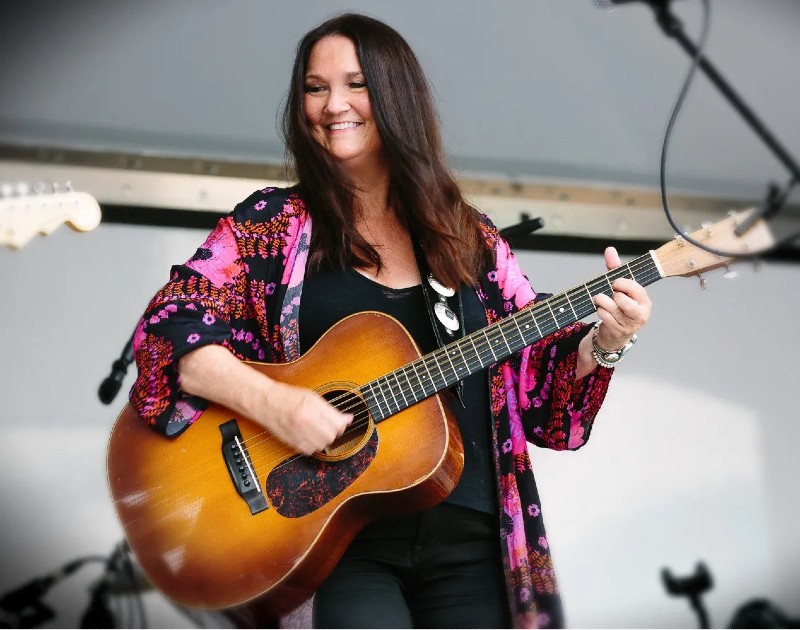
Judy Banker keeps things real on Bona Fide.
The Ann Arbor singer-songwriter explores genuine feelings of heartbreak, grief, and love on her new Americana album.
“One of my litmus tests for myself with a song is: Does it ring true to me? When I think of the vignette, the experience, or the feeling of that kind of relationship dynamic, does it say what I want to say?” said Banker, who’s a University of Michigan alumna and a therapist.
“That’s what I do with my songs—if it doesn’t say it strong enough or it doesn’t capture it quite right—there’s a certain tension that I want to be able to express. I feel like every single one of those songs is like my diary.”
On Bona Fide, Banker takes listeners on a personal journey that explores the cycle of relationships and the emotions that accompany them. The album’s rich harmonies and rootsy instrumentation bring those experiences to life across 11 heartfelt tracks.
“I’m a therapist by day, and on a big-picture level, my adult life has been dedicated to trying to help people to name, understand, and get the complexity of emotions … and that it’s important to work with them and embrace that,” Banker said.
“It’s a very selfish motive in the sense that these are my expressions and my songs, and I like them, but I just hope people say, ‘Oh, I’ve had that feeling.’”
Egg Rolls and Racism: Curtis Chin's memoir recalls growing up in his family's Chinese restaurant in the Cass Corridor

Some lessons arrive early in life and stick with you for years.
For author Curtis Chin, the lesson is “Work hard. Be quiet. Obey your elders.” These instructions become a mantra for Chin as he grows up in his family’s restaurant, Chung’s Cantonese Cuisine, in Detroit. The advice gets him through unfamiliar situations.
Chin recalls his experiences in his new memoir, Everything I Learned, I Learned in a Chinese Restaurant. With humor and the kind of introspection that comes with looking back on one’s life, Chin narrates stories from his time in the restaurant and Detroit, as well as his journey to becoming a writer at the University of Michigan. In fact, he worked at Drake's Sandwich Shop as a student. Food, family ties, and Chin’s identity as a gay American-born Chinese serve as throughlines in the book.
The politics and racism of the '80s parallel Chin’s formative years. Chung’s was in the Cass Corridor, a rough area at that time, and its clientele spanned all races and even drew Mayor Coleman Young as a diner. Chin’s father recognized the lessons to be had from talking with customers and brought his sons from the back kitchen into the dining room: “[H]e had really brought us there to discover the outside world, which was sitting right at our tables. All we had to do was listen.”
Fables of the Deconstruction: Allison Epstein’s second novel uses Eastern European mythology to create queer historical fiction
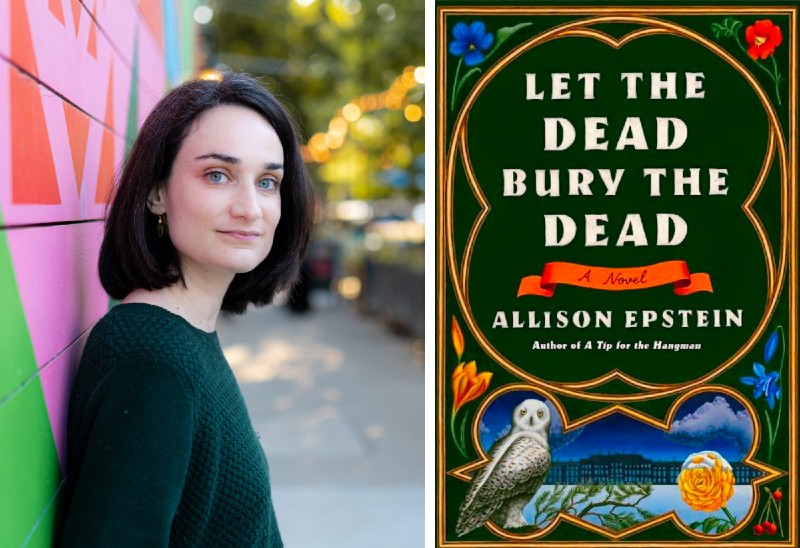
Allison Epstein says Let the Dead Bury the Dead is “my COVID novel, for sure."
She started writing it in 2019 and "most of the drafting and rewriting happened while I was in lockdown, looking for something to do.”
The book is set in 1812 in a partially reimagined St. Petersburg, Russia, where a band of revolutionaries, the Koalitsiya (loosely based on the Decembrists), plot against the tsar, while the tsar’s second son decides whether or not to join them.
The Chicago-based Epstein, who earned her Bachelor of Arts in creative writing from the University of Michigan, also wrote historical fiction in her first novel, A Tip for the Hangman, based on the 16th-century life of playwright and alleged spy Christopher Marlowe.
Epstein says the inspiration for Let the Dead Bury the Dead came from another book set in the same period and country.
Inside Out: Kylee Phillips Gets Vulnerable and Introspective on New “Long Time Coming” EP

Kylee Phillips deliberately steps outside herself and looks inward on Long Time Coming.
The indie-pop singer-songwriter and keyboardist examines past vulnerabilities and realizations through a wiser lens on her new EP.
“It’s very autobiographical. Honestly, writing them was less about sharing them with other people and more about admitting things to myself,” said Phillips, who lives in Ypsilanti.
“In the writing process, I struggle sometimes to be vulnerable or to process my own feelings in real life. I joke that sometimes you could ask me how I feel about a situation and I would say, ‘I don’t know,’ and then I would write a song and go, ‘I guess that’s how I feel about it.’”
On Long Time Coming, Phillips shares a spectrum of emotions—ranging from disappointment to anticipation to relief—across five introspective tracks. The EP’s cathartic lyrics and atmospheric pop instrumentation allow listeners to instantly grasp and connect with Phillips’ perspective.
“A lot of these songs were things that I was describing, especially ‘Long Time Coming,’ and are like the closets in your house where you put stuff and you’re like, ‘I’m not going to think about it; I’m going to pretend that all that crap has been in there,’” Phillips said. “Then at a certain point, you say, ‘I’m gonna have to look in that closet.’”
Until Now: Bill Edwards Shares Personal Tales of Life and Love on "So Far" Album
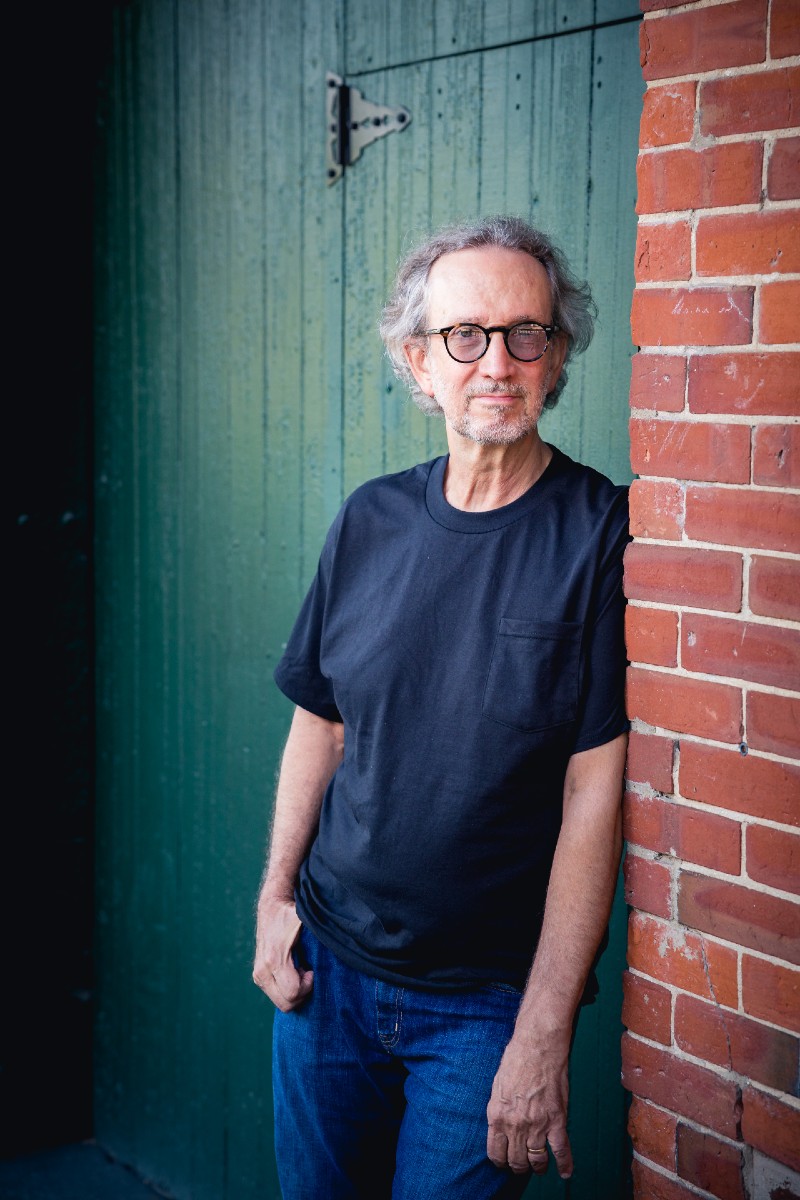
As an accomplished songwriter, Bill Edwards often tells stories from multiple perspectives across an astonishing catalog of songs.
This time, the prolific Ann Arbor singer-songwriter and multi-instrumentalist opted to share his own stories on his new Americana album, So Far.
“The songs are all, without exception, autobiographical, making this the most personal record I’ve ever released. I’ve reached an age where it seemed like it was time to look both backward and forward,” Edwards said.
“The future is never guaranteed, and I wanted some of these feelings captured. There’s a lot of emotional territory covered on the album, and it all feels true to me.”
On So Far, Edwards features 14 tracks that collectively reflect on a life filled with optimism, love, gratitude, loss, wisdom, and nostalgia. The album’s honest sentiment, introspective lyrics, and earnest instrumentation invite listeners to contemplate their own lives alongside Edwards.
“I wrote probably 50 songs that may have been candidates for this record over the past year or so,” he said. “I’m always writing, and these tunes got swapped in and out as new material came to be.”
I recently spoke with Edwards about opening for Rodney Crowell, writing tracks for So Far, recording his new album, hosting an October 18 album release show at The Ark, and working on new material.
Creative Visions: Theater set designer Jungah Han conjures new worlds from scratch

Jungah Han doesn’t try to copy a successful look from a previous production of a play, musical, or opera she is designing. She doesn’t look at photos or read about what other designers have done, and she tells her University of Michigan students to begin without preconceptions, too.
At times—more often when she’s designing in the United States than abroad—she’s been asked to reproduce what’s been done in other productions.
She’s not interested in those jobs.
Han, who joined the faculty at the U-M School of Music, Theatre, and Dance last fall, is a theater artist. She brings her own response to a play, in collaboration with the director’s vision and those of others on the design team.
Yet, Han didn’t even know what theater was when she enrolled in Kangwon National University in her native South Korea. There, she studied business. “Part of business is marketing and advertising. I was interested in the design part,” recalls Han, who moved to Honolulu to study desktop publishing at Hawaii Pacific University.
Then, a tidal change.
The Mating Game: Ann Arbor Civic Theatre's "The Matchmaker" Tells a Deeper Story Beyond "Hello, Dolly!"
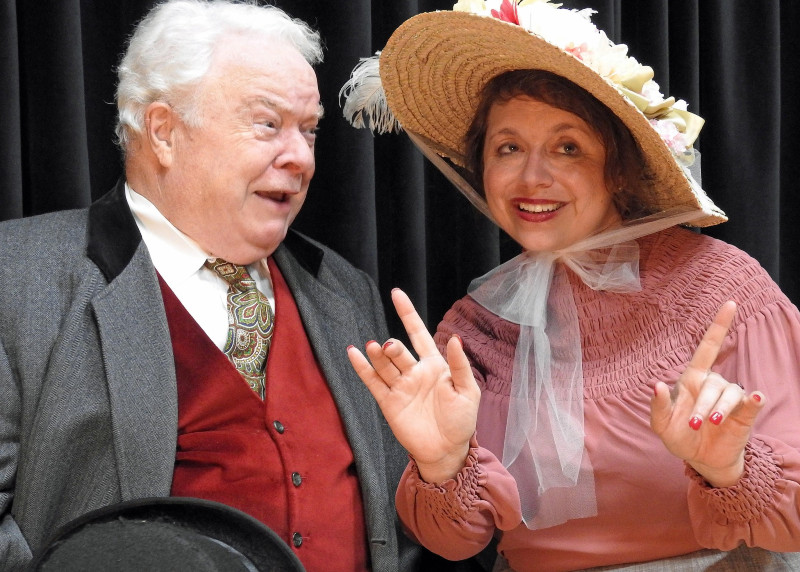
In 1955, playwright Thornton Wilder’s The Matchmaker became a Broadway hit that ran for 486 performances, toured successfully, became a movie, and was embraced by regional and community theaters across the country. Today, Wilder’s play is rarely performed because of Hello Dolly!
“It’s an American classic and it doesn’t get done because Hello, Dolly! gets done,” said Wendy Wright, the director of the Ann Arbor Civic Theatre’s production of The Matchmaker, which will run October 19-22 at the Arthur Miller Theatre.
Hello, Dolly! is, of course, the hit musical adaptation of Thornton Wilder’s play with music and lyrics by Jerry Herman. The song "Hello, Dolly!" was a mega-hit for Louis Armstrong before the musical was up and running, and the musical gave Carol Channing her greatest role. It, too, became a movie with Barbra Streisand and Walter Matthau.
The Matchmaker has an interesting history. It began as a one-act play in England in 1835 and was expanded into a full-length play by an Austrian playwright in 1842. In 1938, Wilder, a three-time Pulitzer Prize-winning playwright and novelist, created an American version of the story that he called The Merchant of Yonkers. It flopped. But Wilder regrouped, put the focus on Dolly, and created The Matchmaker. He won the Pulitzer for the plays, Our Town and The Skin of Our Teeth, and the novella, The Bridge of San Luis Rey.


































